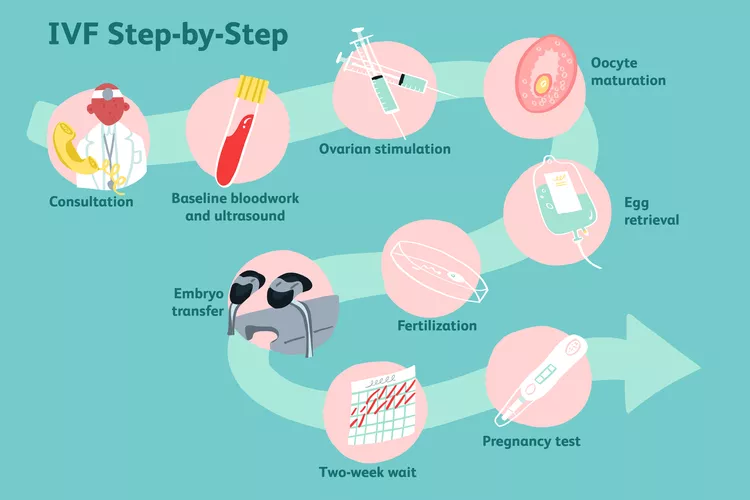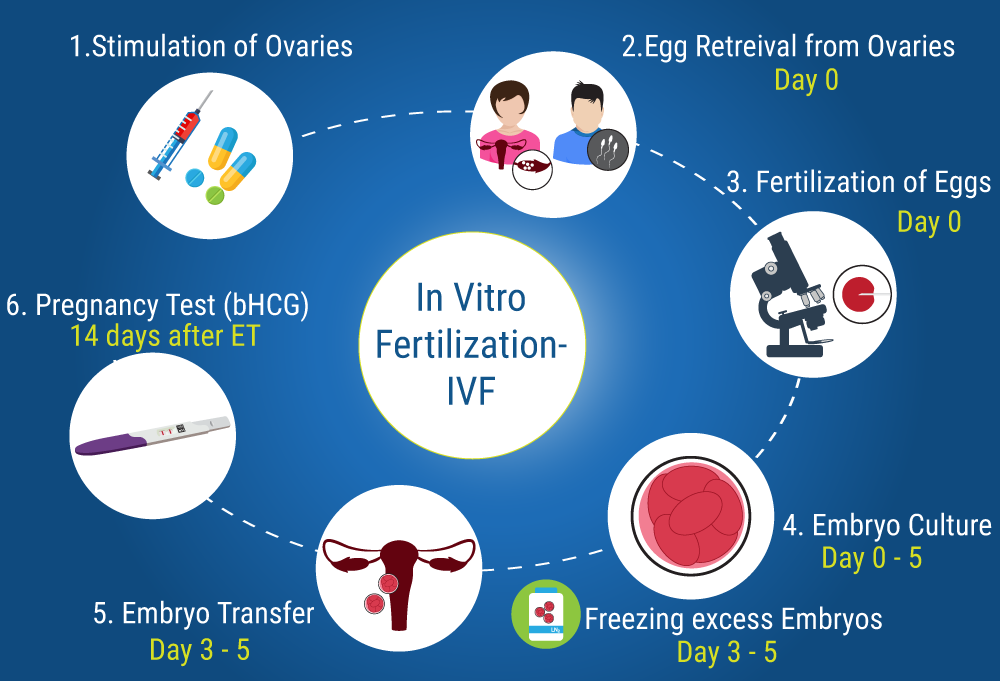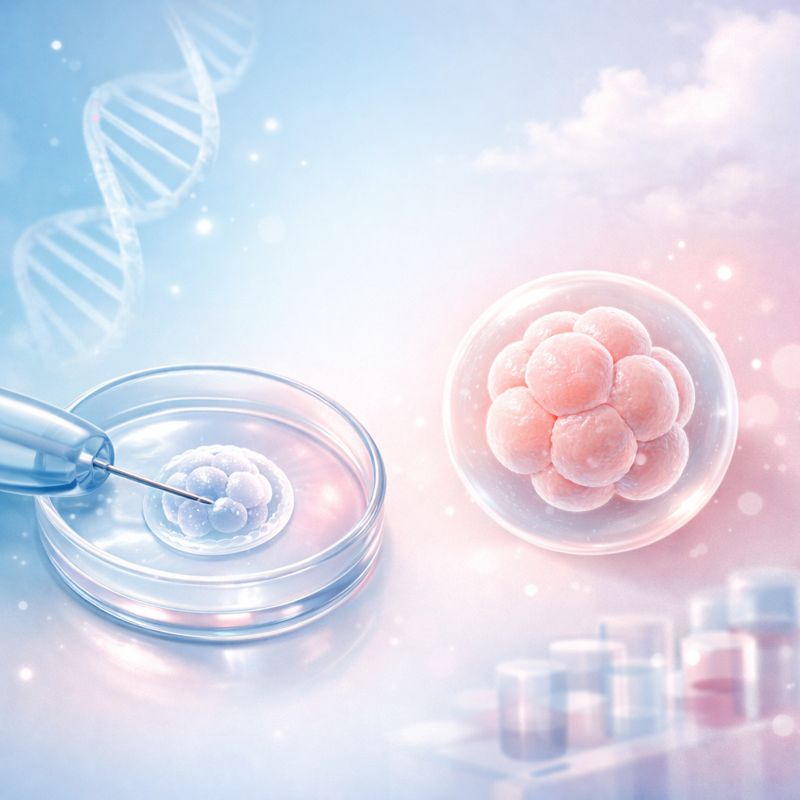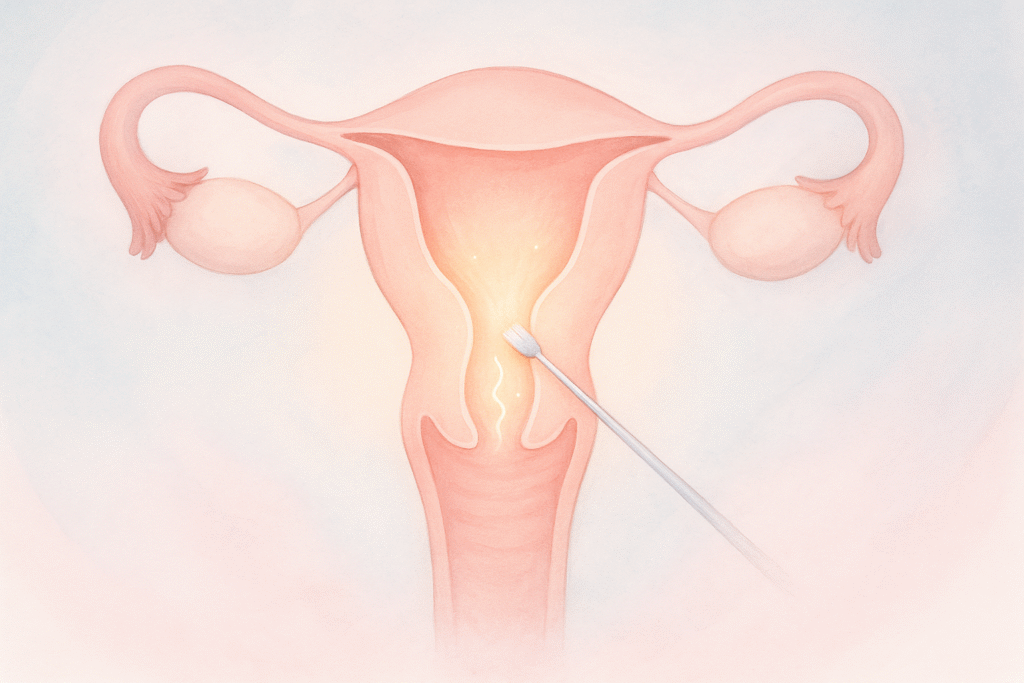
A failed IVF cycle can be a challenging experience both physically and emotionally. Understanding what happens to your body after a failed IVF cycle is crucial for your recovery and preparation for future attempts. Physically, your body may undergo various changes due to the hormonal treatments received during IVF. These treatments can impact your menstrual cycle, hormone levels, and overall physical well-being. It’s essential to give your body time to recover after the procedure. Additionally, the emotional toll can be significant, leading to feelings of sadness, disappointment, and anxiety. Seeking support from medical professionals and loved ones can aid in the healing process.
The Physical and Emotional Toll of a Failed IVF Cycle
The physical and emotional toll of a failed IVF cycle is significant and often intertwined. Physically, many women experience discomfort, bloating, or pain in the abdominal area due to the procedures involved. These physical symptoms can be a constant reminder of the unsuccessful attempt, leading to increased emotional distress. Emotionally, the failure can trigger feelings of grief, loss, and inadequacy. It’s common to experience a rollercoaster of emotions, including anger and sadness. The disappointment of not achieving pregnancy can affect self-esteem and mental health. Engaging in open conversations with healthcare providers and support groups can help individuals navigate this challenging time.
Hormonal Shifts After IVF Treatment
Hormonal shifts after IVF treatment can significantly affect a woman’s body, even after a failed cycle. IVF involves the use of potent hormones to stimulate egg production, which can lead to imbalances. After the cycle, hormones like estrogen and progesterone may drop abruptly, resulting in various symptoms. These shifts can affect mood, leading to feelings of depression or anxiety. Physically, women might experience changes in their menstrual cycle, such as delayed or irregular periods. It’s essential to monitor these hormonal changes and consult with a healthcare provider if symptoms become severe. Understanding these shifts can help in managing recovery better.
Emotional Reactions to IVF Failure
Emotional reactions to IVF failure vary significantly among individuals, but they commonly include sadness, anger, and hopelessness. The disappointment of expecting a positive outcome can be overwhelming, leading to a profound sense of grief. Many women may feel isolated, questioning their worth and future chances of motherhood. It’s not uncommon to experience a range of emotions, from denial to intense sorrow. Some may find themselves blaming themselves or their partners, which can strain relationships. Seeking counseling or support groups dedicated to infertility can provide a safe space to express these emotions and connect with others facing similar struggles.
 After Effects of Failed IVF Treatment on Your Body
After Effects of Failed IVF Treatment on Your Body
After effects of failed IVF treatment on your body can manifest in various ways, both physically and emotionally. Physically, women may experience prolonged symptoms such as abdominal pain, bloating, and fatigue as their bodies recover from the treatment. Emotionally, the aftermath of a failed cycle can lead to increased stress, anxiety, and feelings of depression, impacting overall well-being. It’s crucial to focus on self-care and seek support during this time. Regular check-ups with your healthcare provider can help address any lingering physical issues and support emotional health.
Common Physical Symptoms Post-IVF
After a failed IVF cycle, many women report experiencing common physical symptoms that can be bothersome. These symptoms often arise due to the body’s reaction to the IVF treatment and hormonal medications used. One of the most prevalent symptoms is bloating, which can occur if the ovaries are still unsettled post-stimulation. Abdominal discomfort or pain is another common issue, as the body heals from the egg retrieval process. Some women may experience fatigue, which can be attributed to both the emotional stress and physical demands of the IVF process. Irregular menstruation or changes in menstrual flow can also occur as the body adjusts its hormone levels. It’s important for women to be aware of these symptoms and communicate with their healthcare providers for proper guidance and support.
Understanding the Recovery Timeline
Understanding the recovery timeline after a failed IVF cycle is essential for managing expectations and health. Each woman’s experience may vary, but generally, the body begins to heal within a few weeks post-treatment. Hormone levels typically start to stabilize as the medications leave the system, which can take anywhere from one to three months. During this time, some may experience fluctuating emotions and physical symptoms that require attention. Menstrual cycles might take a while to return to normal, with some women experiencing irregular periods initially. It’s crucial to have follow-up appointments with healthcare providers to monitor physical health and emotional well-being during this recovery phase.
Does a Failed Cycle Impact Your Overall Health?
A failed IVF cycle can raise concerns about its impact on overall health, but most women recover fully with time. While the immediate effects may include physical symptoms and emotional distress, these are often temporary and manageable. It’s important to differentiate between the psychological impact and physical health. Mentally, some women may experience anxiety or depression, highlighting the need for emotional support and counseling. Physically, engaging in a healthy lifestyle, including proper nutrition and exercise, can aid in recovery and improve well-being. Regular medical check-ups are vital to address any underlying issues and ensure that future IVF attempts are approached healthily.
Coping with the Side Effects of Failed IVF Treatment
Coping with the side effects of failed IVF treatment requires a comprehensive approach that addresses both physical and emotional needs. Firstly, it’s essential to seek medical advice for any persistent physical symptoms, such as pain or discomfort, to ensure proper treatment and management. Engaging in self-care activities, like gentle exercise and relaxation techniques, can help alleviate some of the emotional and physical toll. Joining support groups or counseling can provide a platform to share experiences and gain perspective. Maintaining open communication with your partner and healthcare team is crucial for navigating this challenging time together.
Managing Pain and Discomfort
Managing pain and discomfort after a failed IVF cycle is crucial for recovery. Many women experience abdominal pain or cramping, which can be due to the egg retrieval process and ovarian stimulation. Over-the-counter pain relievers, such as ibuprofen or acetaminophen, can help alleviate mild to moderate pain. However, it’s important to consult with a healthcare provider before taking any medication to ensure it’s safe and appropriate for your situation. Applying heat to the abdominal area, through a heating pad or warm water bottle, can also provide relief from cramping and discomfort. If the pain becomes severe or persistent, seeking medical attention is essential to rule out any complications.
How to Address Hormonal Imbalances
Addressing hormonal imbalances after a failed IVF cycle is vital for regaining physical and emotional well-being. First, it’s important to monitor your symptoms and communicate with your healthcare provider about any concerns you may have. They may recommend blood tests to evaluate hormone levels and identify any imbalances. Depending on the results, doctors might suggest supplements or lifestyle changes to help stabilize hormones. Incorporating a balanced diet rich in whole foods, healthy fats, and proteins can support hormonal health. Regular exercise and stress management techniques, such as yoga or meditation, can also play a significant role in balancing hormones and improving overall health.
Can a Failed Cycle Impact Future Attempts?
Many individuals worry if a failed IVF cycle can impact future attempts, both physically and emotionally. While a failed cycle itself does not harm future IVF attempts, the underlying reasons for the failure may need to be addressed. It’s important to have a thorough discussion with your fertility specialist to understand what went wrong and how to improve the chances of success in subsequent cycles. Emotionally, a failed cycle can take a toll on mental health, so seeking support is crucial to build resilience and coping strategies. Maintaining a healthy lifestyle and following medical advice can significantly enhance the outcome of future IVF attempts.
Steps to Prepare for Your Next IVF Cycle
Preparing for your next IVF cycle involves both physical and emotional readiness to increase the chances of success. Firstly, schedule a consultation with your fertility specialist or a IVF Treatment in Cyprus to discuss the previous cycle, evaluate what can be improved, and create a tailored plan. Ensuring your body is in optimal health is crucial; consider adopting a balanced diet, regular exercise, and taking prenatal vitamins as recommended. Emotional preparation is equally important; engaging in counseling or support groups can help you cope with the stresses of IVF. Additionally, maintaining open communication with your partner and healthcare team will provide the support needed throughout the process.



 After Effects of Failed IVF Treatment on Your Body
After Effects of Failed IVF Treatment on Your Body

